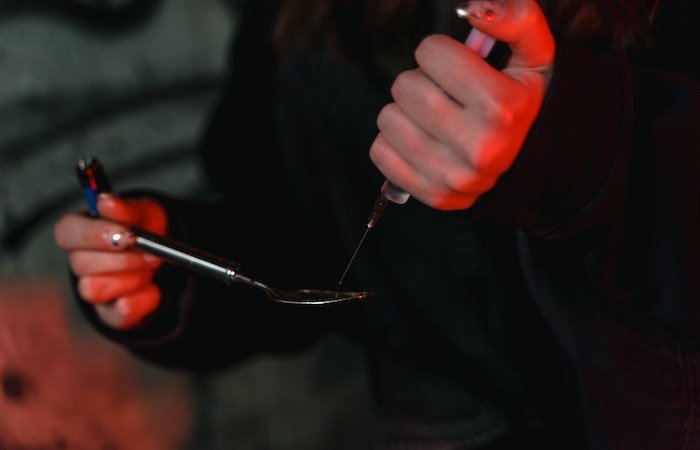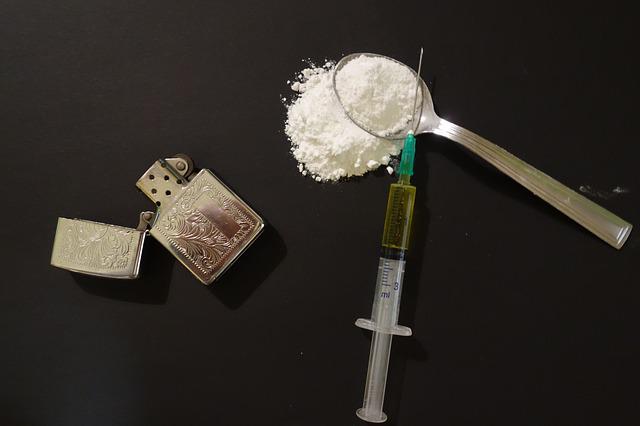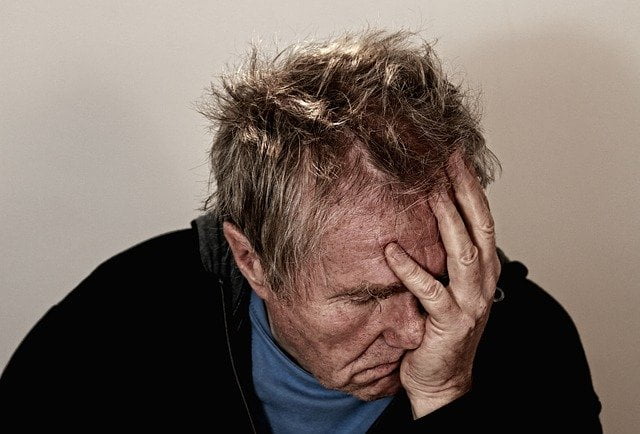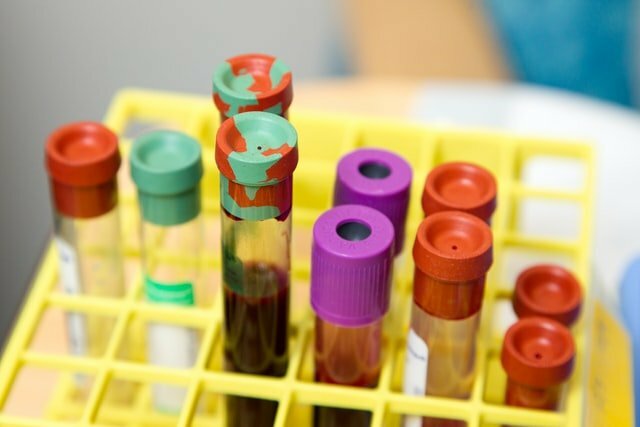How long does heroin stay in your system?
Heroin is often considered one of the most addictive substances in the world.
With a combination of both physical and mental elements to the addiction, heroin is also one of the most difficult substances to withdraw from.
Physically, heroin can take over vital processes of the body – often those involved in daily activities, making the consumption of heroin a daily need in some cases – and this is known as a physical addiction.
Mentally, heroin can cause some serious mental health issues upon withdrawal, increasing an individual’s chances of relapse when compared to other substances and causing long-term problems that must be focussed on during rehabilitation.
This is why it is vital that individuals who feel as if they may be struggling with an addiction to heroin should start seeking suitable treatment options and treatment programs as soon as possible.
Get all the help you need to overcome heroin addiction by calling our team on 0800 088 66 86
What Does Heroin Feel Like?

As mentioned above, heroin is one of the most addictive substances in the world.
This is mainly due to the effects that occur upon consumption, but in general, it is due to the fact that heroin is an incredibly strong substance – even the smallest of doses can cause potent effects on individuals, especially if it is their first time consuming heroin.
If an individual consumes heroin for the first time, they may be likely to experience feelings of nausea, dizziness, and needing to throw up.
In general, this can be accompanied by feelings of happiness, euphoria, relaxation and sleepiness – though these are at their strongest when the individual has a low tolerance.
This means that individuals are likely to begin to consume more and more of the substance in an attempt to gain the same effects from their first time, increasing the risks to their physical and mental well-being as they do so.
The doses of heroin that the individual contains i.e., quantity and regularity, can also have a huge impact on the effects that may be experienced.
To learn everything you need to know about heroin addiction, give our experts a call on 0800 088 66 86
How Is Heroin Taken?

In general, there are three main ways in which individuals would consume heroin. These are snorting, smoking, and injecting.
Often, these three stages progress from one to the other, with most individuals starting by snorting the substance.
Then they will begin to roll heroin into something to smoke – sometimes combined with tobacco or other smoking products.
Smoking allows for a much quicker intake of the substance, meaning that it gets into the blood faster, affecting the individual in a shorter space of time.
The final method of consumption is injecting. This involves obtaining heroin in liquid form and injecting it directly into the bloodstream.
This allows for the fastest method of gaining the effects of heroin but is also far easier to misjudge how much has been consumed, increasing the risk of a heroin overdose.
If you’d like to learn more about heroin and how it’s taken, talk to us today on 0800 088 66 86
Heroin Side Effects

There are many side effects to consuming heroin – many of which are due to the substance itself, as well as the risks of the methods used to consume it.
Heroin and morphine, for example, accounted for almost 25% of drug-related deaths that were reported in the UK in 2021, [1] making them the most dangerous illegal substances available in the UK.
This is because heroin is one of the easiest substances to overdose on – mainly when injected, but in many other cases as well.
For example, although individuals will build up a strong tolerance while they are consuming heroin regularly, this will quickly drop if they go without heroin for a few days, meaning that doses of heroin at their regularly consuming stage could lead to an overdose after a few days break.
In addition, the effects that can be caused such as sleepiness can lead to slowed breathing – too much heroin in this instance could kill, as the breathing rate and heart rate slow too much.
1. Short-Term Effects of Heroin
In the short term of consuming heroin, individuals are likely to experience some of the more positive effects such as extreme happiness and euphoria, as well as feeling very relaxed.
This may be also the stage in which the individual begins to feel very tired, sluggish or sleepy, as well as the stage in which they may feel the need to throw up if it is one of their first times consuming heroin.
2. Long-Term Effects of Heroin
In the long-term of consuming heroin, however, the effects of heroin include those that can be far more impactful and negative to the individual’s health and well-being.
This can include some of the physical risks such as blood clots, developing infections, and causing further damage to blood veins as a result of injecting regularly.
The use of needles in general can also lead to long-term issues and problems such as the use of unclean needles and sharing them among many people.
This can lead to serious issues such as the development of HIV (human immunodeficiency virus) – a long-term illness that is currently uncurable but can be treated to improve the individual’s wellness and extend the time taken before it develops into AIDS (acquired immune deficiency syndrome).
Long-term use is also correlated to greater withdrawal symptoms – becoming life-threatening in some extreme and long-term cases.
Kidney disease, for example, is commonly associated with heroin addiction.
Don’t let heroin addiction ruin your life – give our team a call today on 0800 088 66 86
How Is Heroin Metabolized in the Body?

Research has shown [2] that heroin is metabolised in the body in many similar ways to cocaine.
This is mainly due to the way in which the substance is broken down within the body, as well as the chemicals and enzymes that are used, created, and disposed of in the process.
The research concluded by determining that the breaking down of heroin and cocaine within the body is similar due to the metabolic pathways that this process is involved in.
Although there may be similarities in how both substances are broken down and metabolised within the body, this is about where the similarities end.
Cocaine, unlike heroin, is not physically addictive, meaning that the withdrawal process is not as complex, there are fewer risks involved, and the individual will experience fewer withdrawal symptoms and relapse triggers.
Learn everything you need to know about heroin and how it impacts the body by giving our team a call on 0800 088 66 86
How Long Does Heroin Stay in Your System?

The life of heroin within the body depends on many individual factors.
These include, but are not limited to:
- Metabolic rate
- Age
- Height and weight
- Body fat
- Quantity and regularity of consumption
- Health of liver and kidneys
- Amount of water in the system (hydration)
In addition, heroin is more likely to be detected in some areas of the body for longer than others. Different drug tests, for example, may be able to detect heroin in the body for far longer than others.
Some of these areas (and associated drug tests) are outlined in the following subheadings.
How Long Does Heroin Stay in Your Urine?
Traces of urine stay in the body for the relatively shortest period of time.
This is because urine is the way in which the body expels many waste products.
This means that waste disposal will occur more regularly, removing traces of heroin from the body in around 48 hours (2 days).
Some urine tests, however, may detect heroin in the urine for up to 7 days or more.
Again, this is all dependent on the factors mentioned above.
In this instance, the individual may not be very hydrated, reducing their intake of water and leading to a longer life of heroin within the body.
How Long Does Heroin Stay in Your Blood?
This is the place in the body that most consumers of heroin are aiming to get the substance into. Once heroin is in the bloodstream, individuals experience the effects of heroin much faster.
This is why injecting the substance is one of the most common ways in which the drug is taken or administered.
However, blood is constantly moving around in the body, meaning that the detection times of blood tests for heroin in the bloodstream can be around 5-6 hours after the last dose has been taken.
The more heroin an individual consumes, however, the longer it is present within the body and therefore able to be detected. In some cases, heroin may be detected in the blood for up to 2 days.

How Long Does Heroin Stay in Your Saliva?
Heroin detection in the saliva is similar to the bloodstream – around 5-6 hours of detection time after the individual has consumed the substance.
This is the most common method for law enforcers to use when testing at the roadside if they suspect that an individual has been drug driving, and it is also one of the most sensitive and accurate tests that can be done quickly and with as little invasion as possible.
Some tests, however, may be able to detect heroin usage for up to 2 days, so it is entirely dependent on the specific test that is being used.
How Long Does Heroin Stay in Your Hair?
This is not commonly one of the places in which individuals believe that traces of drugs, especially heroin, may be found.
Hair follicle tests, however, are a rather common method of drug detection due to the length of time in which an individual may be tested for drugs that have been in their system.
For heroin, for example, consumption of the substance may be detected for up to 3 months or more. This is because as the hair grows, small quantities of the drug are trapped within the hair follicles, leading to drug detection within 3 months or more.
To find out more about how heroin is detected in the body, call our expert team on 0800 088 66 86
Heroin Addiction Treatment

If you or someone you know is struggling with heroin addiction or substance use disorder, then seeking suitable rehabilitative treatment should be of utmost importance and priority.
This is because any drug addiction can worsen exponentially over a short period of time – especially heroin – and the sooner suitable care is sought, the sooner the individual can be rehabilitated and return to a standard lifestyle.
By contacting Rehab Recovery, we can help any individual who needs our help to find the most suitable treatment plan for them, including suitable detoxification sessions, therapy, further treatment, as well as a supportive and tailored aftercare program.
To make sure you get properly treated for heroin addiction, call us on 0800 088 66 86
What does heroin treatment involve?

In all treatment for heroin addiction offered and supported through Rehab Recovery, an individual will follow the three stages outlined below:
- Detoxification – the removal of the substance and harmful chemicals from the body
- Therapy/rehabilitation – the bulk of treatment where the individual works through their unique circumstances
- Aftercare – any support received after leaving the bulk of their treatment, including further self and supported learning sessions.
By progressing through each of these stages with full commitment and motivation, individuals will have a far better chance of success in care and be more likely to maintain their sobriety and addiction-free lifestyle in the long term.
The following subheadings outline some of the key processes that make up part of an individual’s recovery journey.
1. Detoxification (detox)
As mentioned above, this is the stage in which an individual will withdraw from heroin, dealing with the withdrawal symptoms as well as removing any harmful buildups of chemicals that have occurred due to the individual’s heroin consumption history.
In the case of most heroin withdrawals, this will be fully supported by medical professionals in order to ensure the individual’s safety, comfort, and required medical intervention.
Research has shown [3] that substances such as buprenorphine have been especially effective in reducing the harmful withdrawal symptoms that occur during a heroin withdrawal.
However, it is important to remember that these substances are often like heroin, meaning that they may come with their own withdrawals later down the line, though this is only recommended in some cases and will be fully outlined with the individual before making any final decisions.
2. Self-help
The focus of rehabilitation is to ensure that individuals are able to support themselves and live without lifelong rehabilitation after leaving their chosen place of care and/or support.
This means that individuals take part in a range of therapies to ensure that they are prepared for the realities of living with addiction in the long term.
It is common for individuals to be encouraged to create their own relapse risk prevention plan, for example, while they are still in care to support them after they leave their chosen source of rehabilitation support.
3. Talking therapies
Talking therapies – where an individual is encouraged to open up about their addiction and/or situation – are common within addiction treatment plans.
This is because these forms of therapy often allow the therapist or counsellor to help the individual to work out the root cause of their addiction, working on this together to make coping mechanisms and tools to help them in the long term.
In general, talking therapies can be both individual e.g., behavioural therapies such as CBT (cognitive behavioural therapy), and group-based e.g., group talking therapy, AA (Alcoholics Anonymous).
4. Reducing harm
Most rehabilitation programs will focus on the reduction of the negative or harmful consequences of an individual’s addiction or a heroin user’s life.
Whether these are social, environmental, physical, mental, or emotional issues, heroin rehabilitation aims to guide the individual through the recovery process, helping them to work on some of these issues one step at a time and ensuring the longevity of these forms of support.
Ensure that you get the help you need from professional heroin treatment by calling us on 0800 088 66 86
Getting Help for Heroin Addiction

To learn more about heroin, addictions to heroin, and how Rehab Recovery can help you or someone you know to find treatment for heroin addiction, please do not hesitate to get in contact with a member of our friendly and professional team today.
We deal with all requests confidentially and with the utmost commitment to helping each individual who seeks our help to find the most suitable and appropriate form of care for their individual case.
To find out how we can help you or someone you know, take a look at some of our other information pages, or give us a call on our addiction support line on 0800 088 66 86 today.




